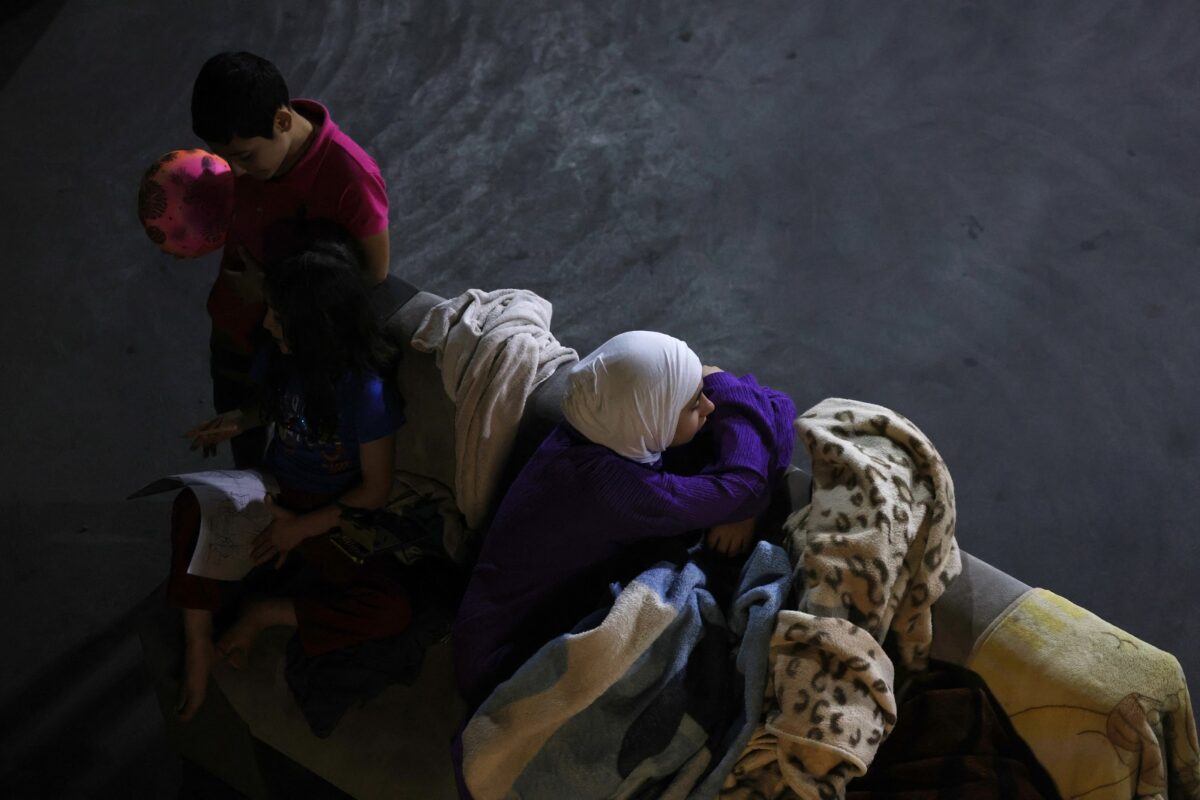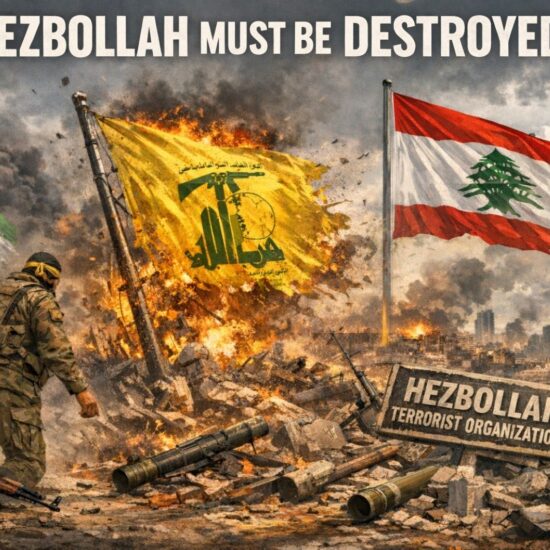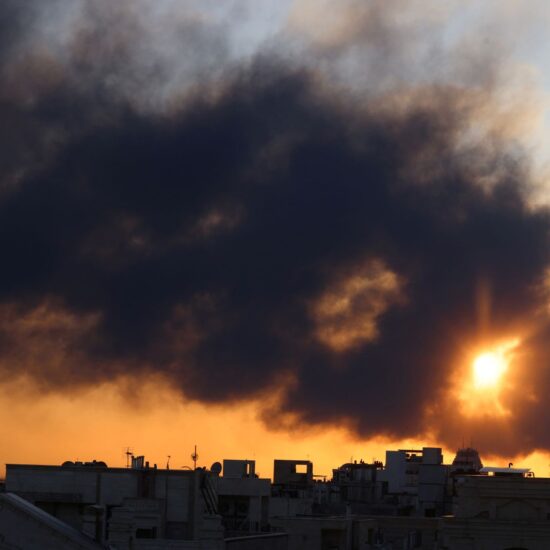
Acting as Iran’s key ally in the region, Hezbollah is making Lebanon pay a high cost. Dragged into war, displaced civilians share their thoughts on the current escalation of violence
Hassan Nasrallah’s death is an enormous blow to Hezbollah and its followers. The group is undoubtedly right now struggling to try to reconvene, reorganize and assert their next steps, including with their ally Iran and other allies around the Middle East.
For more than 30 years, Hezbollah supporters were given reassurance and protection by their leader, whilst orchestrating and inspiring its campaign against Israel and promising his followers to pray in Quds, under Iran’s ideological commitment to support the Palestinian cause and fight Israel.
The accumulated blows of the last eight weeks have been particularly painful for the group, but the killing of Hassan Nasrallah is the most significant blow to Hezbollah, especially being killed in the Beirut suburb of Dahieh, the site of the group’s headquarters.
Iran’s influence reflected
The country has paid a heavy price for this alliance, facing repeated conflicts, international isolation, and economic instability, particularly as Hezbollah’s actions have drawn Lebanon into confrontations, including the current war.
As Hezbollah continues to challenge Israel, Iran is now facing consequences for its backing of the group. Recent missile attacks targeting Israel suggest that Tehran may be paying the price for its steadfast support of Hezbollah.
Analysts predict that this recent involvement from Iran could further destabilize the region, with potential repercussions for both Lebanon and Iran itself.
Attacks on Israel could lead to further international condemnation and intensify existing economic and political sanctions against Iran whilst risking provoking a stronger military response from the U.S. or other Western allies, leading to an all-out conflict.
Last but not least, any direct military action against Israel could derail ongoing or future efforts to revive the nuclear deal as countries involved in negotiations, such as the US and European powers, would likely view Iran’s aggressive actions as a violation of diplomatic norms, making them less inclined to negotiate or offer concessions.
Shocking news
“When he became committed to being a part of this conflict on the 8th of October, and being dragged by Iran to make decisions on behalf of all of his people, we as southerners have since been living in uncertainty, but now after his killing, what are we supposed to do? Our houses and villages have been destroyed by the irrational decisions they took.” Nour Ghandour, a mother of 3 who is from Sour had to evacuate to Mount Lebanon as her village came under intensive attacks and is now sheltering in a school.
When asked about who she thinks is responsible for the current situation they are in? She told NOW the following.
“The blame cannot be diverted on Sayed Hassan only, but on the party as a whole. Their military capabilities have been undermined and cannot even be compared to Israelis. They shouldn’t have dragged the country once again into this seemingly never-ending war for a cause that they were not capable of achieving,” Nour said.
Nearly two decades later from the 2006 war that lasted 34 days, Israel’s military seems to have absorbed the lessons from that conflict, gearing up for what could be its most decisive confrontation yet with Hezbollah. This comes in the wake of the death of Hezbollah’s leader, Hassan Nasrallah, who was killed in an airstrike in Beirut last Thursday.
Although the Israel-Hamas war in Gaza has captured the world’s attention, now there is a serious risk of a long-feared regional war the day after Iran fired a barrage of missiles at Israel.
Following the attacks, Israel vowed Iran “will pay” for its attacks, while Tehran urged the US to “step aside” and warned any retaliation will be met with “an even tougher response.”
Exhausted is an understatement
“Why do we always have to bear the brunt of their over-excitement for war? Why does Iran always control us? Now they want to free Palestine on the back of all Lebanese? We are already mired in a big crisis, we have a paralyzed government who cannot help to provide any help for the displaced civilians, our children are missing out on the most crucial thing of their life and that is education,” said Josephine, who is a displaced civilian from a Christian village in the south of Lebanon.
Mentally and physically exhausted is how Josephine described her current state. The constant bombardments, loss of loved ones, and displacement evoke feelings of helplessness, fear, and isolation.
Big losses
Many of the displaced Lebanese have agreed that this war does not serve Lebanon, in fact it has brought further destruction and punishment to the country as a whole, whilst bringing nothing to Gaza but instead more aggression and escalation which have all been reflected on Lebanon, starting with the Southern border, into the southern villages and now in Beirut as well as other regions in the country that were regarded safer.
For a year, activists, analysts and some members of the parliament have been calling on Hezbollah to stop the fire they ignited on 8th of October.
In a recent tweet, Michel Helou, Secretary General of National Bloc has reflected his thoughts on the ongoing war, blaming Hezbollah for dragging the country into the current situation that it is in. “For a year, they’ve held the Lebanese people hostage against their will, who among us truly wanted yet another war, who genuinely believed it would benefit the Palestinians?” The tweet stated.
For Michel, the myth of Hezbollah’s “resistance” is unraveling, dragging the entire country into the abyss.
No to war
Engaging in war only exacerbates Lebanon’s challenges, putting innocent civilians at risk and further destabilizing the fragile state that the country is in.
For many Lebanese academics and political analysts, rather than resorting to war, Lebanon could have pursued diplomatic solutions through international advocacy. Secondly, strengthening its internal unity and addressing internal political divisions would have also positioned Lebanon more effectively in negotiating de-escalation with Israel.
“Lebanon cannot afford another war with Israel due to its already dire economic, political, and social conditions. The country is struggling with a collapsed economy, skyrocketing inflation, widespread poverty, and a weakened infrastructure, making it ill-equipped to handle the financial and humanitarian costs of war as we are witnessing this as we speak.” Said Rasha Ghanem, a sociology graduate who works with Caritas Lebanon.
The emotional and physical toll on these families is immense. They face uncertainty about their future, with many unsure if they’ll ever be able to return to their homes. Basic necessities like food, clean water, and medical care are in short supply, and the trauma of displacement weighs heavily, especially on children and the elderly.
“At Caritas, we are doing everything we can to provide them with immediate relief, offering food, shelter, and psychological support, but the scale of the crisis is overwhelming,” Rasha explained to NOW.
The ongoing violence makes it difficult to reach certain areas, and the needs continue to grow each day as more families are displaced by the conflict.
Rodayna Raydan is a Lebanese-British journalist. You can follow her on Twitter @Rodayna_462
The views in this story reflect those of the author alone and do not necessarily reflect the beliefs of NOW.roday








